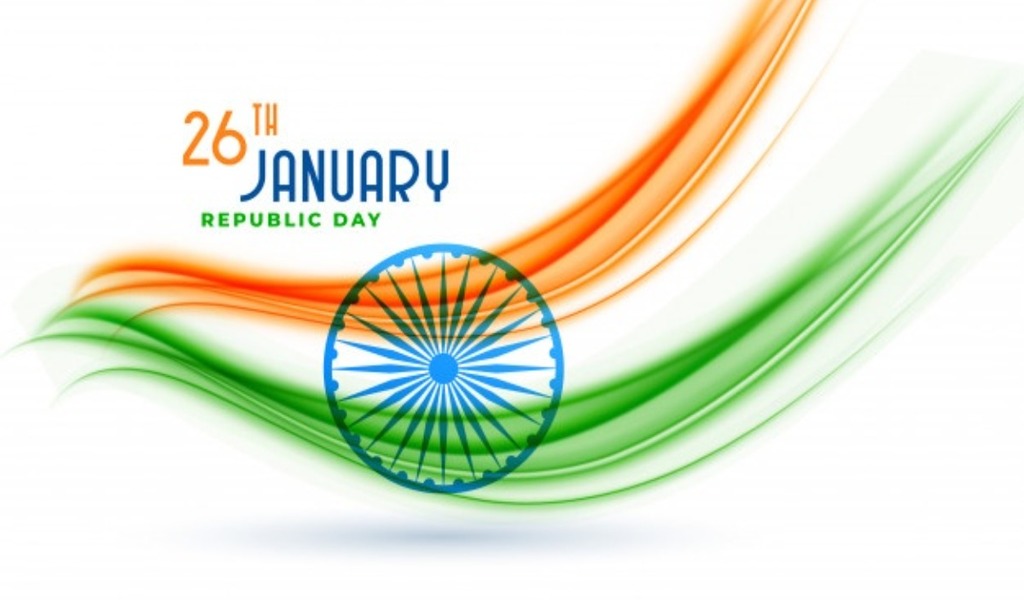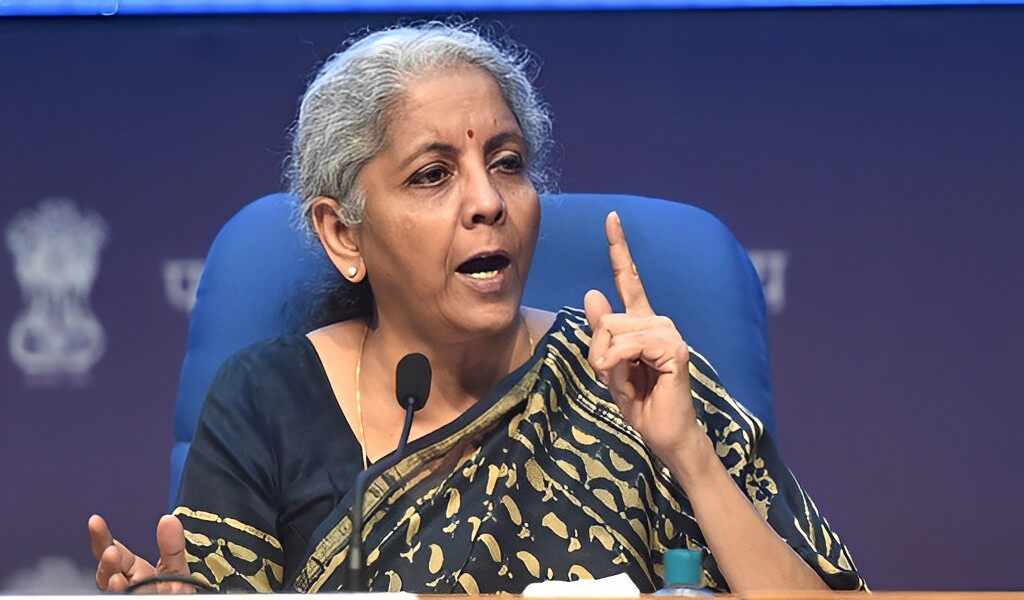#SayNoTo31stDecember: Should we reject the Gregorian system ?
On the eve of the new year celebrations, a particular hashtag began trending on the social media platforms by the name #CalenderBadlenSanskritiNahi:
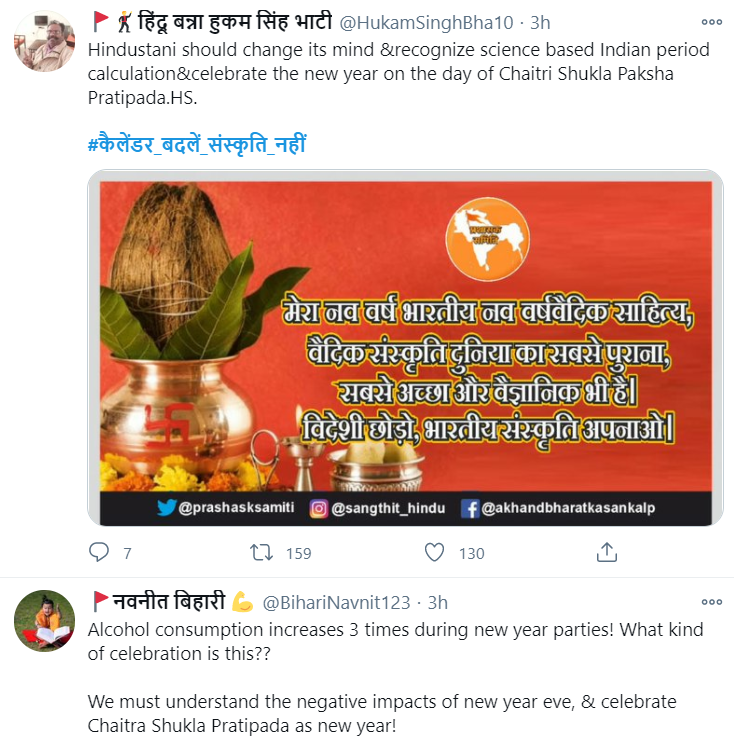
A further analysis reveals that the trend has been built up against the so called "westernised culture" of celebrating the new in accordance with the Gregorian Calender. The calender was introduced in October 1582 by Pope Gregory XIII as a minor modification of the Julian calendar, reducing the average year from 365.25 days to 365.2425 days, and adjusting for the drift in the 'tropical' or 'solar' year that the inaccuracy had caused during the intervening centuries.
The Hindu calendar, which was first developed in the 5th century, is more focused on planetary alignment and the marking of holy Hindu festivals. There are multiple variations which exists within the Hindu calender. For instance, the Malayalam calender is used by those who speak the language while the Kannada Panchangam is used by the Kannada tribe.
In the Gregorian calendar, each of the 12 months has 30 or 31 days, while the months in the Hindu calendar have just 28 days. The Hindu calendar adds an extra month, known as the Adhik Mas, to the year after every 30 months to cater for the loss of additional days because its years constitute of 28-day months. The Gregorian calendar has four seasons: summer, spring, winter, and autumn while the Hindu calender has six. The Hindu new year is celebrated in spring around March whilst according to the Gregorian calender new year falls on the 1st of January.
Under British influence, Gregorian Calendar introduced in India in circa 1753 and is widely followed including in all governmental agencies.
However, some of the netizens have taken to twitter to oppose it under different hashtags, one of them also being #SayNoTo31stDecember, urging people to celebrate the occassion on Hindu new year:
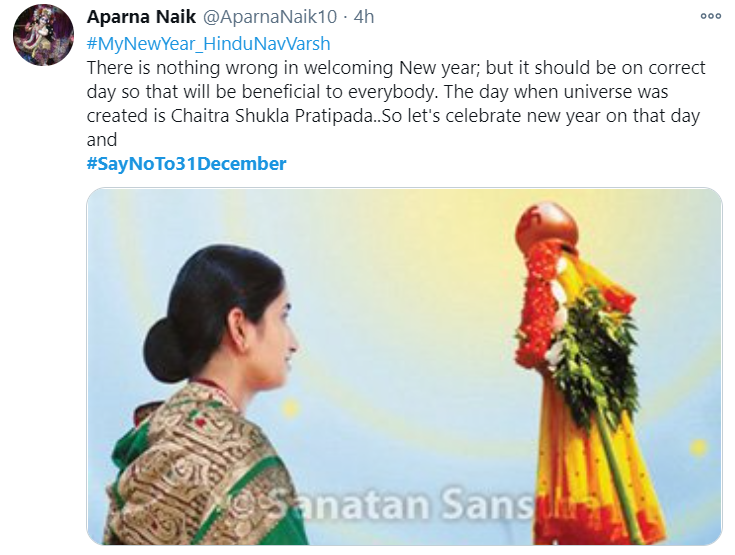
It is no alien to us that new year celebrations also bring with them remorse for some. Drink and Drive cases are common across the country on the eve of the new year. Eve-teasing is often witnessed and violent clashes have become common. However, this fact cannot be used as a ground to disregard it completely.
Following of the Gregorian calender is beneficial for business and smooth functioning because the whole world follows it and the global economy is fucntions on it. Moreover, the national calender of India is Shalivahana Shaka which is used alongside the Gregorian calender. Even the festivals are followed in accordance with the traditional calender.
Whether or not the Gregorian Calender be rejected is a matter of debate. Whether or not the new year celelbrations be halted is a matter of discussion. We at Checkbrand encourage our readers to remain safe and practise caution while indulging themselves in celebrations.
CATEGORIES
- Digital Marketing
- Marketing
- Entertainment
- Medical
- Science and Technology
- Politics
- Sports
- Environment
- Campaign
- Interview
- Viral
- What's Trending
- Trending News
- Viral Videos
- Youtube Trends
- Social Media Ranking
- Twitter Trends
- Google Trends
- Top Politicians
- Top Cricketers
- Top Influencers
- Best Campaigns
- Google News
- News
-
 Oct 11, 2020
Oct 11, 2020SEO Content Writing Vs. SEO Copywriting:...
-
 Dec 15, 2020
Dec 15, 2020#Karnatakaiphoneplantagitation: Workers...
-
 Dec 15, 2020
Dec 15, 2020#OLA Invests ₹2400 Crores For Our Futur...
-
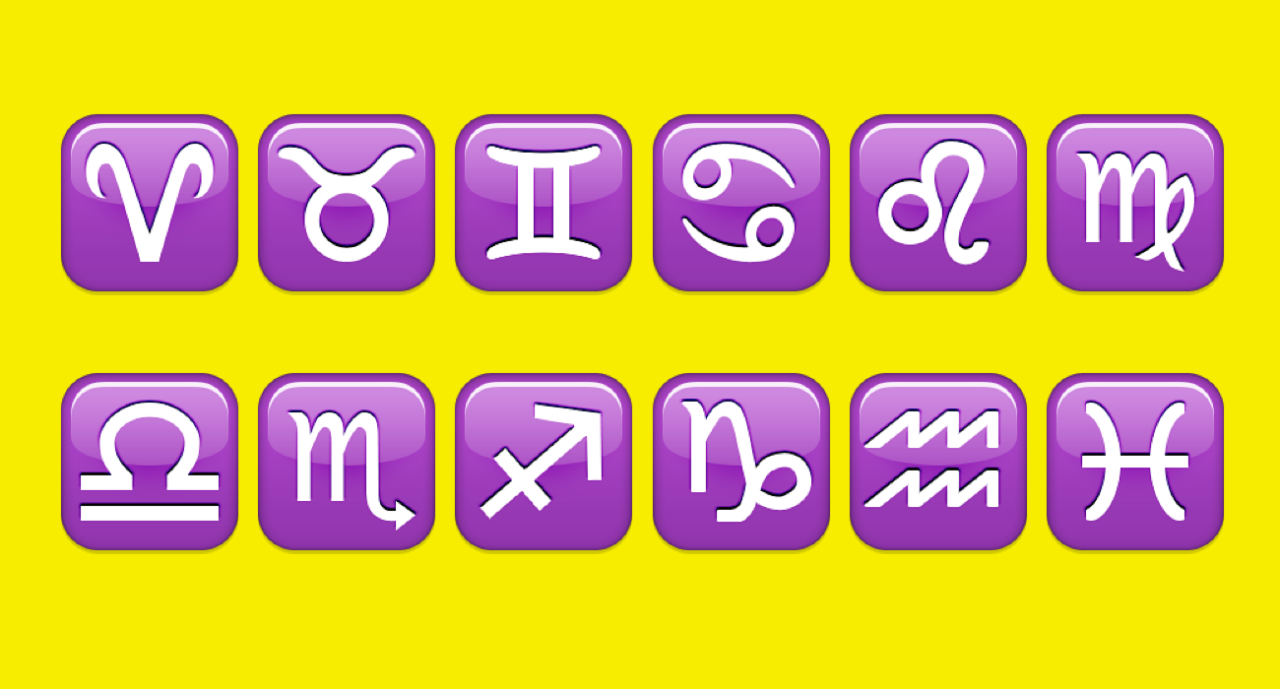 Dec 15, 2020
Dec 15, 2020#Snapchat Launches Astrology Profile
-
 Dec 15, 2020
Dec 15, 2020Know Why #BOYCOTTJIOSIM Is Trending On S...
-
 Aug 01, 2023
Aug 01, 2023India's Chandrayaan-3 On Track For Lunar...
-
 May 17, 2023
May 17, 2023Zara Hatke Zara Bachke Trailer Review(Ra...
-
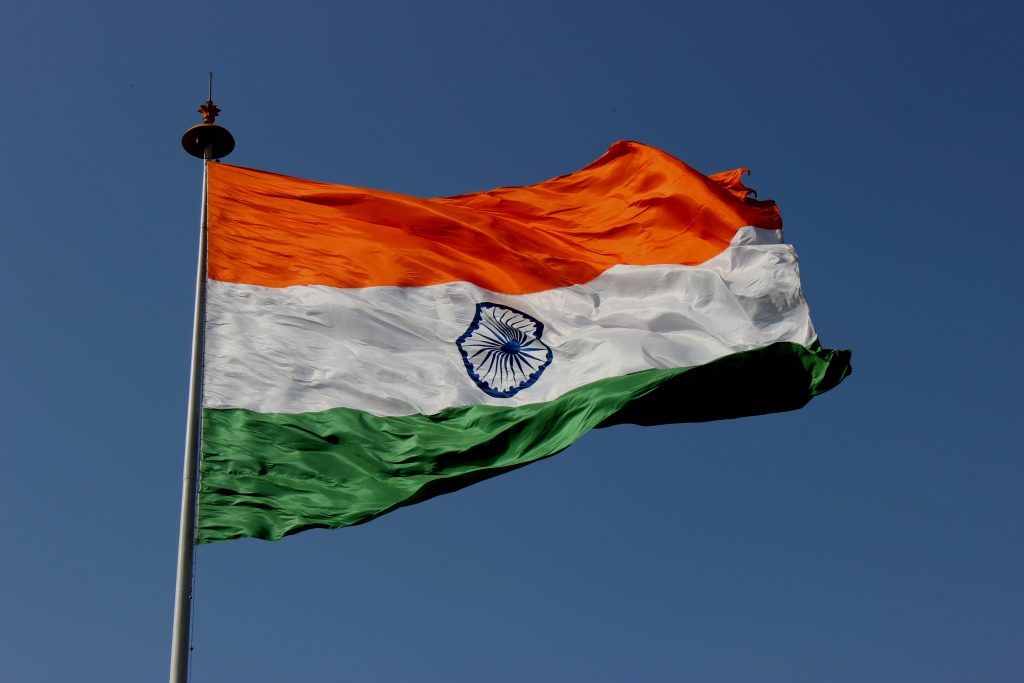 Aug 04, 2022
Aug 04, 2022'Har Ghar Tiranga' Campaign Created Stor...
-
 Dec 16, 2020
Dec 16, 2020#Skillhaitohfuturehai: Mahindra's Flagsh...
-
 Dec 15, 2020
Dec 15, 2020#OLA Invests ₹2400 Crores For Our Futur...
HIGHLIGHTS
- Realme Pad Specifications Teased, Will C...
- MARKETS: Sensex Down 300 Pts, At Days Lo...
- Afghanistan Crisis Live Updates: NIA Chi...
- Women Will Be Admitted To NDA, "Historic...
- Taliban's New Education Minister Says Ph...
- India's T20 World Cup Selection Question...
- New JioFiber Quarterly Broadband Plans I...
- Explained: How Your Cat Got Its Stripes...
- Who Is Aesha Mukherji? All You Need To K...
- Long Live Test Cricket While We've Virat...






